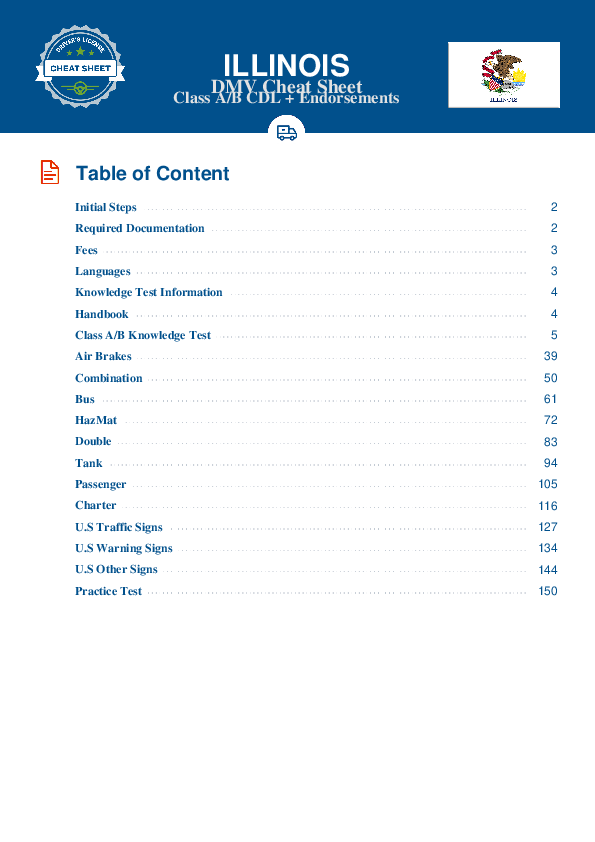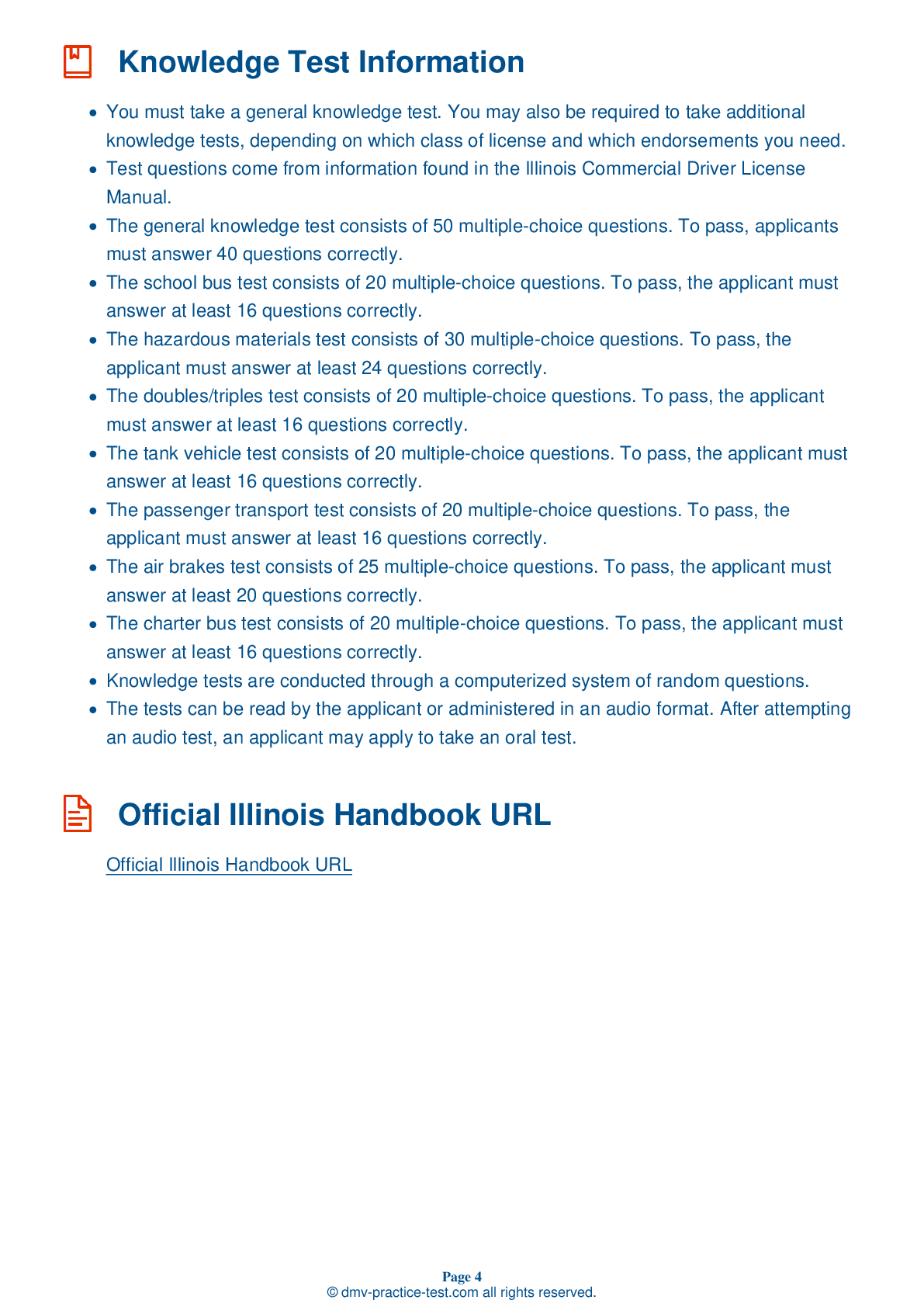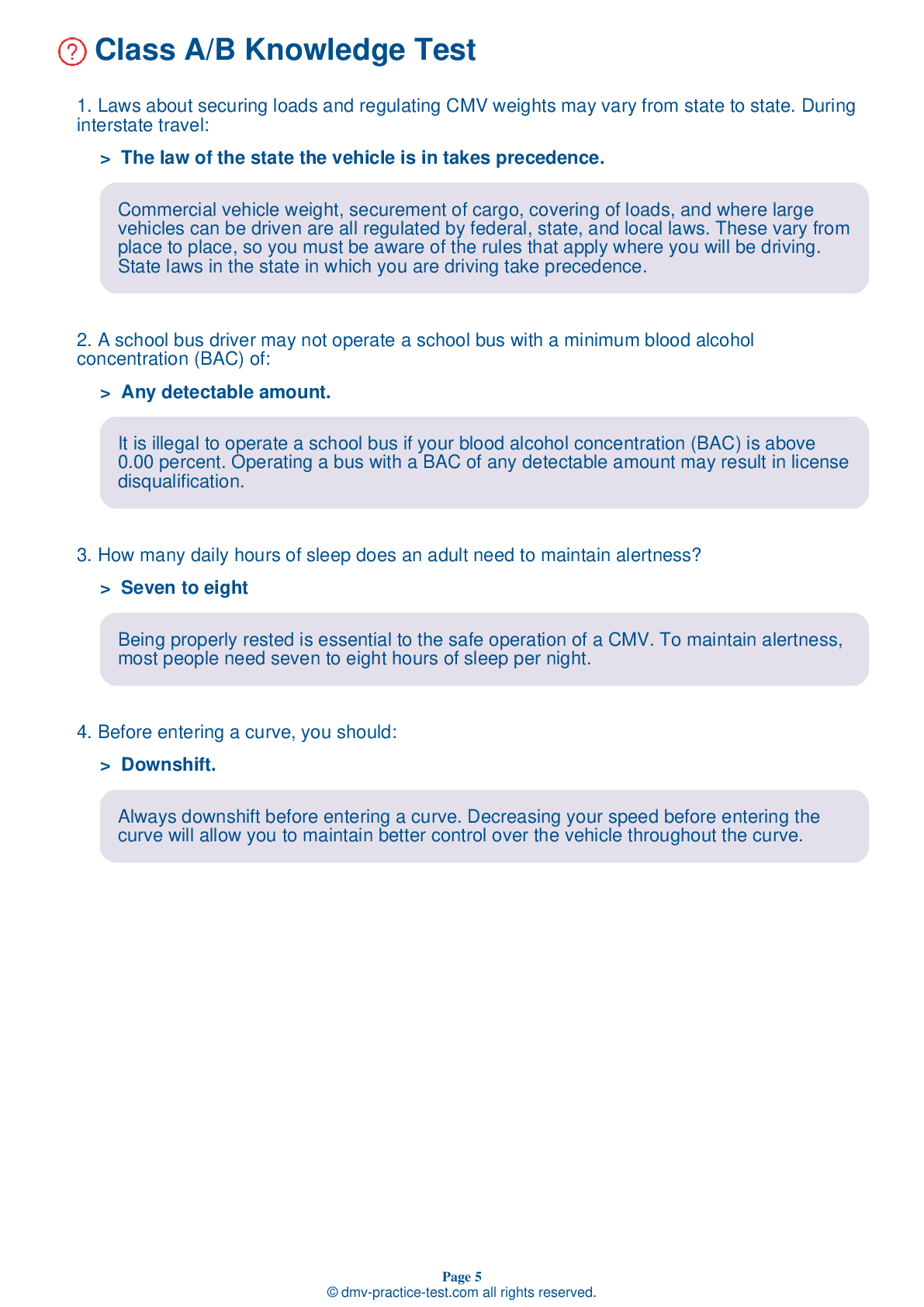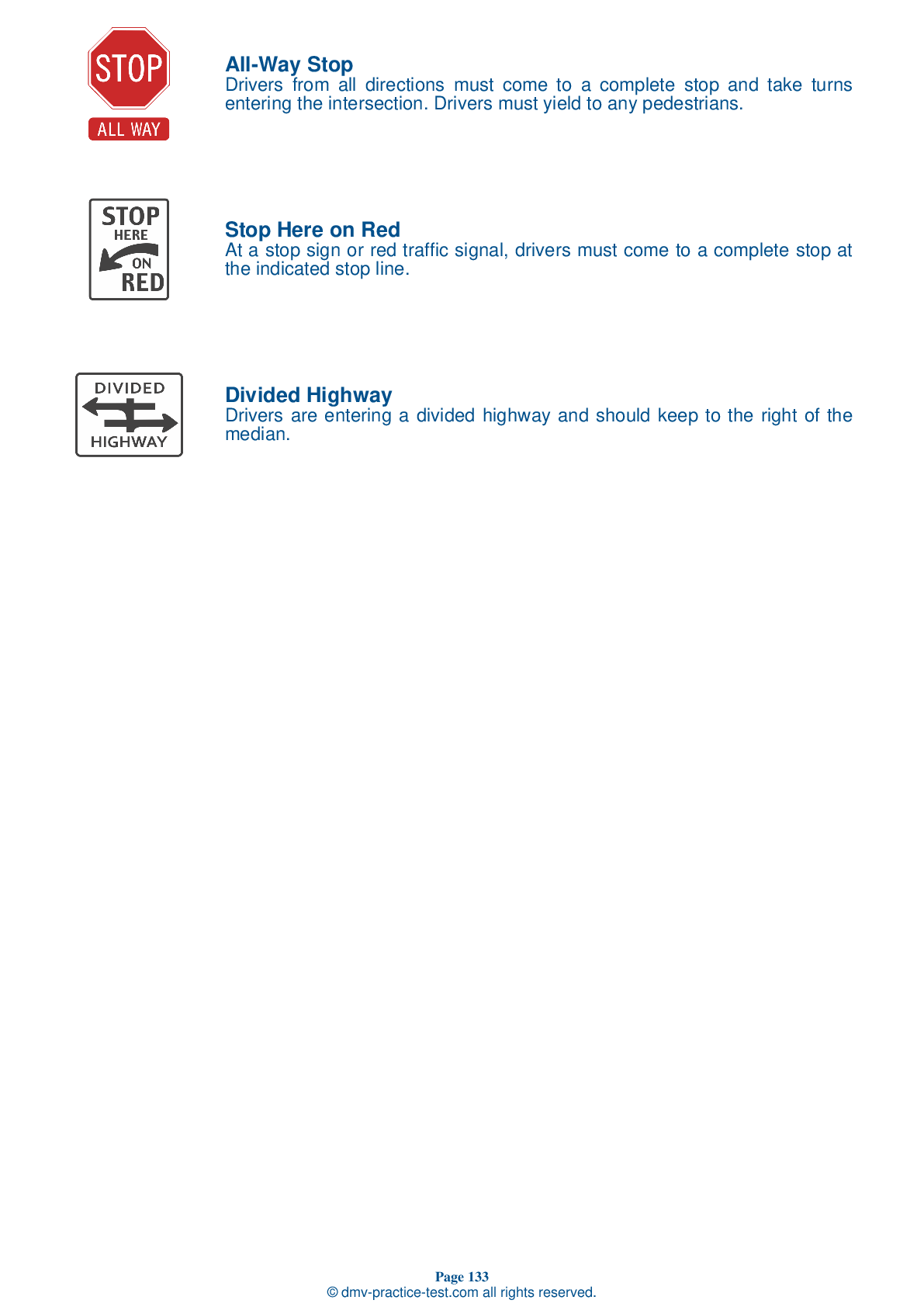Class B Driving Test | Illinois 2026 #1 Page 6 of 7
Train for FREE online with our Illinois class B license test. The official exam test consists of several obligatory parts, with all of them checking your knowledge of different blocks of road rules. If you need to obtain a IL CDL class B permit in 2026, practice as much as possible. Free sample tests published on our website will help you check and improve your knowledge and boost your grades. Please bear in mind that CDL class B requirements may vary from state to state.
36 . Improperly loaded cargo:
Proper loading of cargo is essential for safety. Cargo that is not properly secured could fall off and cause death or injury. Excessive or inappropriate loading could damage a vehicle, and make it hard for a driver to steer safely.
37 . During exercises that are not the straight line backing exercise, you may exit your vehicle to check its position no more than:
A driver is allowed to exit their vehicle to check its position during any basic control skills test exercise. This action is called a "look." During the straight line backing exercise, a driver may not exceed one look. During any other exercise, a driver may not exceed two looks.
38 . If you’re feeling tired before a drive, you should:
Stimulant drugs, including caffeine, are not helpful as a way of avoiding fatigue. They may help keep you awake, but will not make you any more alert. Feeling tired is a sign that your body needs sleep, and the only way to properly address it is to stop driving and get some sleep.
39 . During a written exam:
All electronic devices must be turned off while a written exam is being taken.
40 . What should a driver do if their vehicle hydroplanes?
If your vehicle begins to hydroplane, you should slow down by releasing the accelerator and pushing in the clutch.
41 . How often does a truck with a gross weight of more than 8,000 pounds need to be inspected?
Trucks registered with a gross weight of more than 8,000 pounds are among the vehicles required to undergo a semi-annual safety inspection.
42 . Convex mirrors:
Many large vehicles have curved, convex mirrors. Convex mirrors allow drivers to see a wider area than flat mirrors. However, they also make objects seem smaller and farther away than they really are.
See the exact questions that will be on the 2026 Illinois DMV exam.
99.2% of people who use the cheat sheet pass the FIRST TIME
Lillian MCcranie explains how our CDL study guide was helpful in passing the exam and recommends it to everyone.
Cameron tells us how he purchased the CDL exam, and found it to be a useful tool which helped him pass the exam and find a job.



